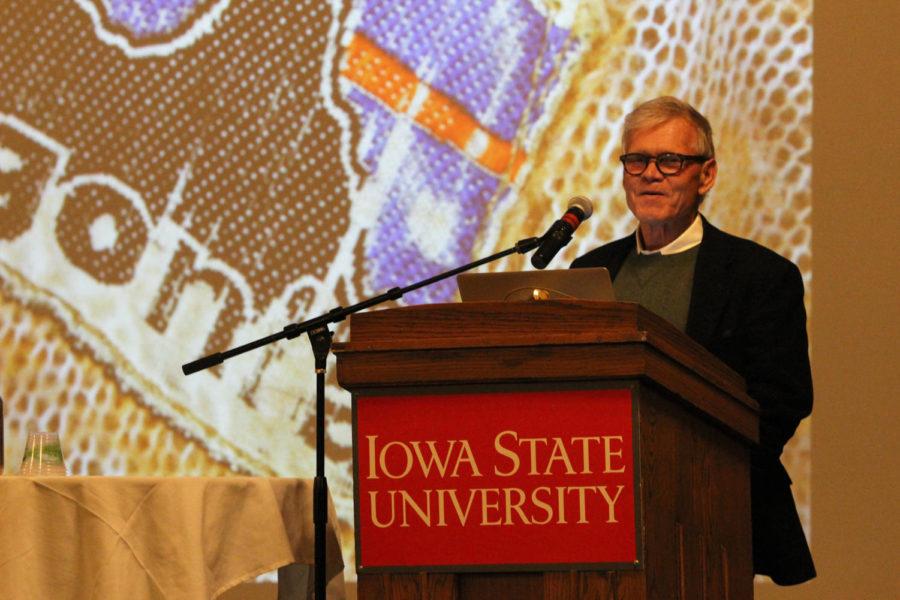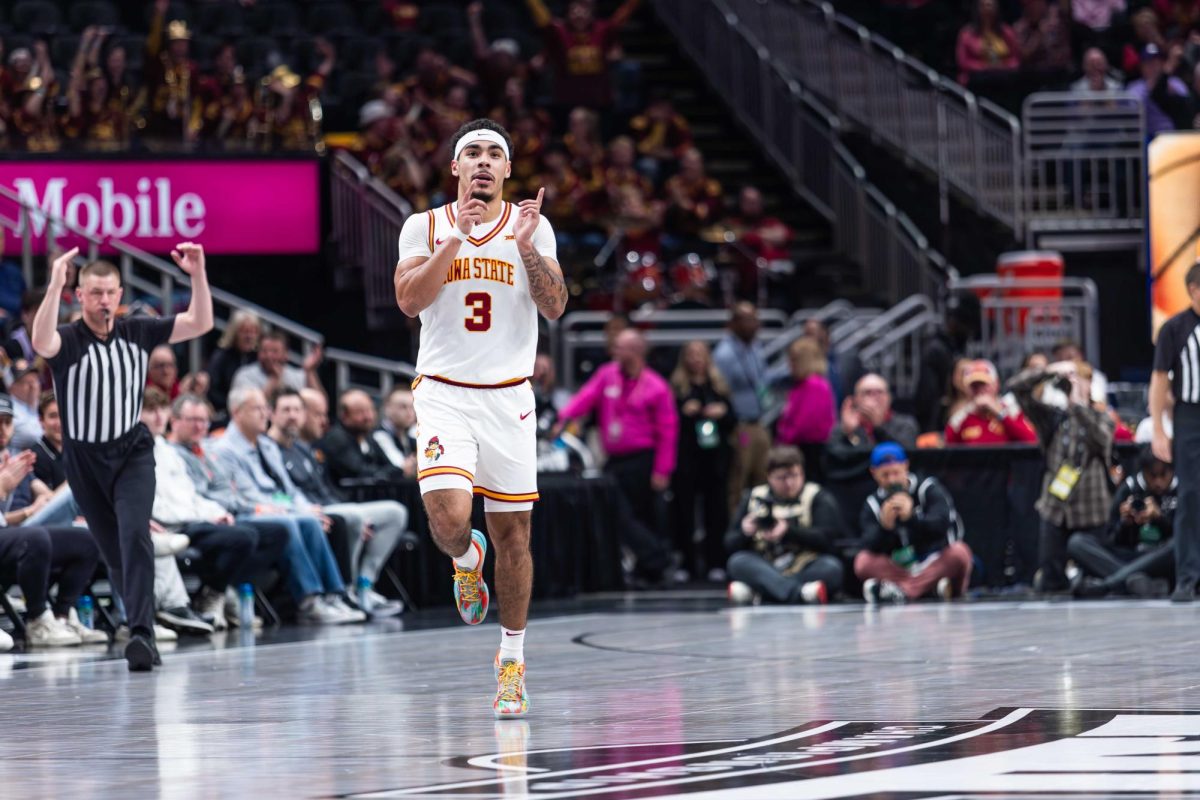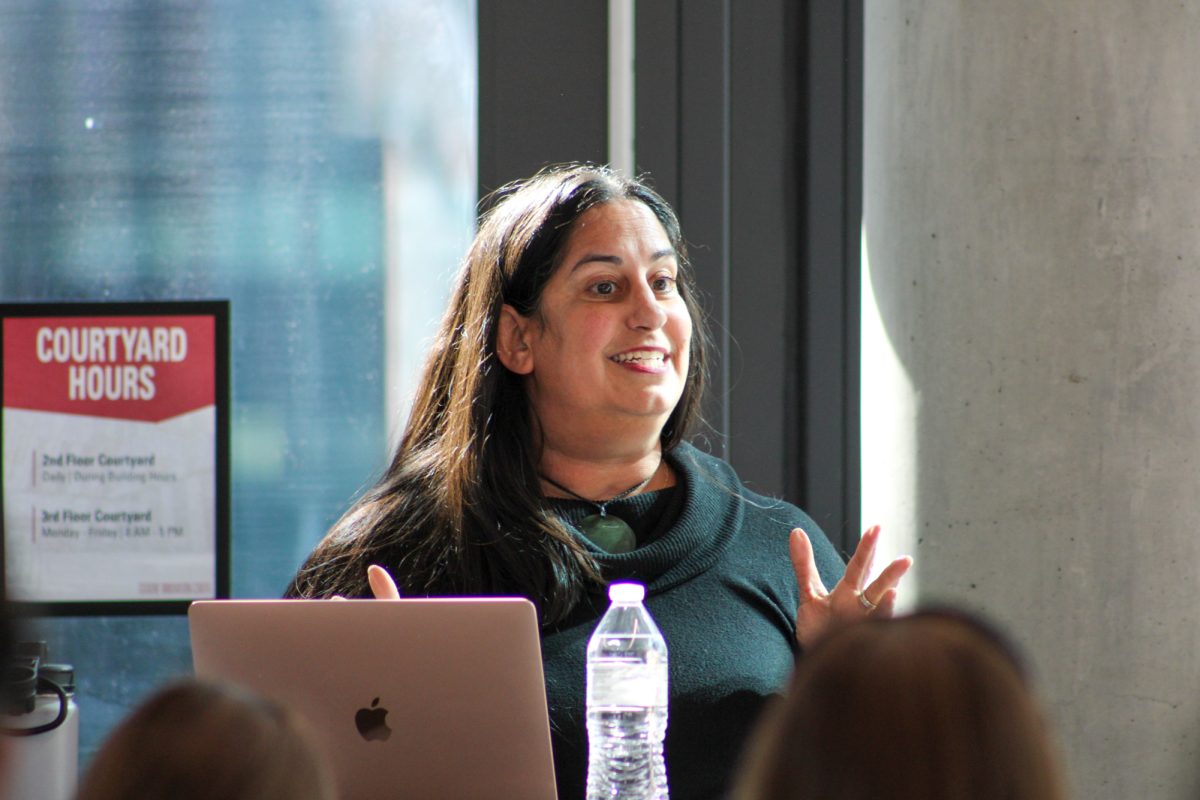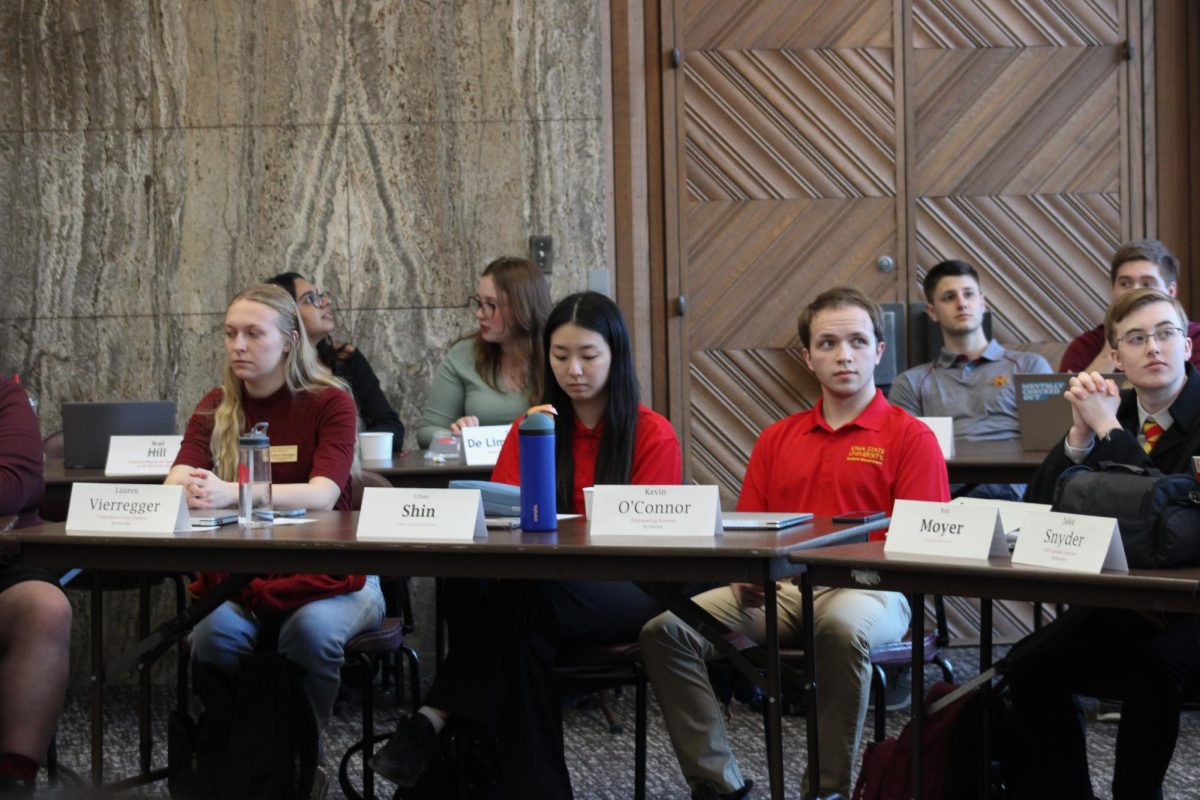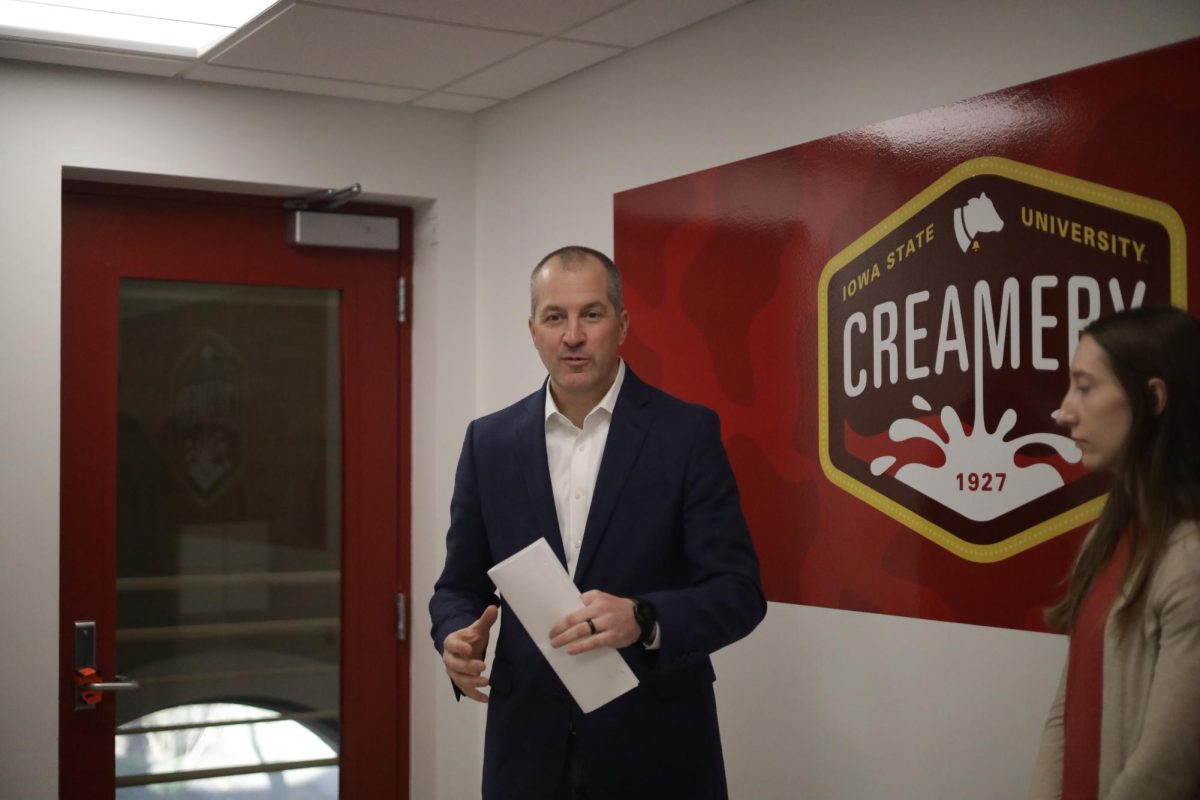Rick Ridgeway of Patagonia highlights environmental initiatives in lecture
Patagonia’s vice president of public engagement Rick Ridgeway speaks to Iowa State students on Feb. 2 in the Great Hall of the Memorial Union.
February 2, 2017
Black Friday is known for bringing in the big bucks for companies to end their yearly sales on the right note.
In 2016, Patagonia, a high-performance outerwear company, donated every cent of its earnings from Black Friday, $10 million, to grassroots environmental organizations. Rick Ridgeway, vice president of public engagement at Patagonia, has spearheaded many environmental initiatives the outerwear company has taken on.
“Build the best product, cause no unnecessary harm, and use business to inspire and implement solutions to the environmental crisis,” Patagonia’s mission statement reads.
That’s exactly what Ridgeway strives to do.
During his lecture “Good for Business, Good for the Planet,” Ridgeway spoke about the history of the company and the many sustainable initiatives he has implemented into the workforce.
“For those of us in business, we have to ask ourselves how we can use our business as a tool for environmental protection,” Ridgeway said.
Despite giving away $10 million from Black Friday to environmental organizations, Patagonia wants to give more.
“1% for the Planet” is an initiative Patagonia has implemented into its company since 1985. The initiative contributes 1 percent of total annual sales to environmental organizations.
In addition to the already donated $10 million, Patagonia will give $7 million more from its annual sales.
“This year we’re going to end up giving away about $17 million,” Ridgeway said. “That will be to well over 800 environmental organizations.”
At Patagonia, Ridgeway’s been involved with Footprint Chronicles, an initiative seeking to reduce adverse social and environmental impacts on an industrial scale through the supply chain.
The initiative is focused on making sure Patagonia products are produced under safe, fair and legal human working conditions.
“Knowing your supply chain and managing it directly, that’s the only way to make sure our down products are causing no unnecessary harm, including no unnecessary harm to the geese,” Ridgeway said.
Ridgeway also was responsible for the initiative Worn Wear. This initiative aims for Patagonia to produce high-quality merchandise that will last for years and can be repaired easily.
Through a repair-and-recycle program, Patagonia is encouraging reduced consumption. With long-lasting and more durable clothing, customers don’t have to buy products as often. The Patagonia website has a detailed repair guide for anyone interested in fixing their gear themselves.
“In just a couple months we’re going to be launching a program to take back from our customers, used stuff that they’re not using anymore in our stores and give them credit in return,” Ridgeway said.
This new program will expand what Worn Wear is already doing by repairing the donated clothing to later sell as used clothing on its website.
The Responsible Economy Campaign, another initiative Ridgeway is involved in, looks to consumers and businesses to start a conversation on what a truly sustainable economy might look like.
Through the essays printed in Patagonia catalogs, the blogs on its website, the point-of-purchase displays located in its stores, the emails sent to customers and the conversations the company has with the press, Patagonia is pushing people to answer the question, “Can we even imagine what an economy would look like that wouldn’t destroy the home planet?” A responsible economy?”
Ridgeway co-founded the Sustainable Apparel Coalition, which aims to produce no unnecessary environmental harm throughout apparel, footwear and home textiles industry. Rather, these industries should have a positive impact on the people and communities associated with its activities.
The coalition has implemented a set of self-assessment tools, the Higg Index, for companies to measure their environmental, social and labor impacts to identify areas for improvement.
Luke Goodman, sophomore in animal ecology and member of Iowa State’s Climate Reality Project, attended the lecture to hear from Ridgeway and promote the project’s petition to have campus be 100 percent dependent on renewable energy.
“[Patagonia] puts a lot of money toward different research and activities that promote activism on climate change, so I came here to support that because it’s a huge issue,” Goodman said.
Ridgeway ended the lecture by imploring students to buy products from companies that are committed to stakeholder, and not shareholder, values.
“Refuse to work for any companies that aren’t [being sustainable] … you’ve got the most power in your hands right now to change the world. The influence you have on companies is incredible,” Ridgeway said.


